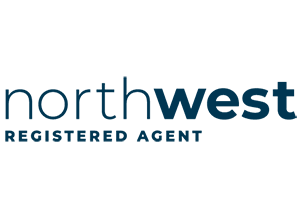Best Corporation Services Of 2025
Compare top Corporation formation services to find the best fit for your business

Staff Writer
Arorix Editorial Team
Updated: June 14, 2025
Best for Budget-Friendly Filing
- $199 + state fees
- 1-year registered agent
- Lifetime compliance alerts
Best for Foreign-Owned Corporations
- $199 + state fees
- EIN, bylaws, resolutions
- Foreign-owned corp support
9.0
EXCELLENT
Best for Branding + Compliance
- $199 + state fees
- EIN, formation documents
- Logo, domain, website builder
4

8.5
EXCELLENT
Best for Speed + Simplicity
- $199 + state fees
- Fast filing, report alerts
- EIN, custom bylaws
Best for Privacy-Focused Support
- $39 + state fees
- Articles, bylaws, RA (1 year)
- Private, no upsells
6

7.8
EXCELLENT
Best for Legal Add-Ons
- $149 + state fees
- Bylaws, EIN, corp tools
- Legal services & upgrades
Looking for a Complete All-in-One Solution?

9.9
EXCELLENT
Best Overall Business Launch Solution
- EIN, docs, & custom branding included
- Access to Arorix OS™ business dashboard
- Website, CRM, and automation tools built-in
Our Top 3 Services
1

Best for Budget-Friendly Filing
- $199 + state fees
- 1-year registered agent
- Lifetime compliance alerts
9.8
Best for Foreign-Owned Corporations
- $199 + state fees
- EIN, bylaws, resolutions
- Foreign-owned corp support
Best for Branding + Compliance
- $199 + state fees
- EIN, formation documents
- Logo, domain, website builder
4

Best for Speed + Simplicity
- $199 + state fees
- Fast filing, report alerts
- EIN, custom bylaws
8.5
Best for Privacy-Focused Support
- $39 + state fees
- Articles, bylaws, RA (1 year)
- Private, no upsells
6

Best for Legal Add-Ons
- $149 + state fees
- Bylaws, EIN, corp tools
- Legal services & upgrades
7.8
Looking for a Complete All-in-One Solution?

Best Overall Business Launch Solution
- EIN, docs, & custom branding included
- Access to Arorix OS™ business dashboard
- Website, CRM, and automation tools built-in
9.9
Starting a Corporation Made Simple
Incorporation services handle state rules, file your paperwork right the first time, and help you avoid costly mistakes. Many include extras like registered agent service, bylaws templates, stock issuance tools, and compliance reminders—making your launch faster, easier, and stress-free.
What is a Corporation?
A corporation is a separate legal entity from its owners—it can own property, sign contracts, and pay taxes on its own.
Types of Corporations:
C Corporation (C-Corp): Default structure; taxed separately
S Corporation (S-Corp): Pass-through taxation (IRS approval needed)
Tax Differences: C-Corp vs. S-Corp
C Corporation (C-Corp)
Double Taxation: Pays corporate tax + shareholders taxed on dividends
Flat 21% Tax Rate: Federal corporate income
No Pass-Through: Profits taxed at the corporate level
Fringe Benefit Deductions: Health insurance, etc., are deductible
Unlimited Shareholders: No limits, foreign investors allowed
S Corporation (S-Corp)
Pass-Through Taxation: Profits/losses go to personal tax returns
No Double Taxation: Only shareholders are taxed
IRS Election Required: Must file Form 2553
Ownership Limits: 100 shareholders max; U.S. citizens/residents only
Reasonable Salary Rule: Owner-employees must take payroll-taxed salary
Corporation Filing Fees and Costs
Required Costs
State Filing Fee: $50–$500+
Registered Agent: $100–$300/year
Name Reservation: $10–$50 (if required)
Franchise Tax / Initial Report: $0–$800+ (state-dependent)
Certified Copies / Good Standing: $10–$75
Optional Add-Ons
EIN Filing: Free via IRS, or $50–$100 through a service
Corporate Bylaws Template: Free–$100+
S-Corp Election (Form 2553): Free
Operating Docs Package: $50–$200
Service Packages
Basic: $0–$99 + state fees
Mid-Tier: $199–$249 + state fees (includes EIN, bylaws, compliance tools)
Premium: $299–$349 + state fees (full service + agent + alerts)
Tip: Using a formation provider can help you avoid missed steps and stay legally compliant.
What Are Corporate Bylaws and Why Do They Matter?
Bylaws are an internal document that outlines how your corporation is run. Most states require you to create them after incorporation—even if you don’t file them with the state.
Why They Matter:
Define officer roles, voting rights, and responsibilities
Required to stay compliant and legally protected
Often needed for bank accounts, loans, or investors
Help prevent internal conflicts and guide decision-making
What to Include:
Officer/director duties
Meeting rules and documentation
Shareholder voting process
Share issuance and transfer rules
Amendment procedures
Most formation services include bylaws, but make sure they’re editable and state-compliant.
Why Startups and Solo Entrepreneurs Use Corporation Filing Services
What Incorporation Services Typically Include
Registered Agent Service
Keeps your address private and ensures you don’t miss legal notices.Corporate Bylaws & Documents
Includes bylaws, share certificates, and resolutions to keep your structure compliant.Board Meetings & Resolutions
Tools to record initial meetings, elect officers, and issue shares properly.Articles of Incorporation Filing
Filed correctly with required info like share structure and business purpose.S-Corp Election (Optional)
Some services assist with IRS Form 2553 to help you save on taxes.Launch-Ready Add-Ons
EIN filing, name checks, compliance alerts, domains, and logo tools included in some plans.Affordable for Startups
Choose between low-cost filing or full-service packages with legal essentials.

Common Corporation Filing Mistakes to Avoid
Skipping Bylaws: Legally required—missing them can lead to disputes or noncompliance.
Not Issuing Stock: You must issue and document shares to maintain corporate status.
Using a Personal Address: Makes your info public—use a registered agent or business address.
Neglecting Board Meetings: Required for corporations—document major decisions to stay compliant.
Missing S-Corp Election: File IRS Form 2553 on time or risk default C-Corp taxation.
Ignoring State Requirements: Annual reports, taxes, and recordkeeping are mandatory—don’t skip them.
How to Choose the Right Corporation Filing Service
Clear, Upfront Pricing: Avoid hidden fees—know exactly what you’re paying for.
Included Essentials: Ensure it covers Articles of Incorporation, bylaws, and registered agent.
Experience With State Requirements: Choose a provider that understands your state’s rules.
Support for S-Corp Election: If needed, look for help with filing IRS Form 2553.
Document Quality: Templates should be professional, editable, and compliant.
Helpful Add-Ons: EIN filing, compliance alerts, domain registration, and branding tools are a plus.
Customer Reviews & Reputation: Look for strong ratings and reliable customer support.



